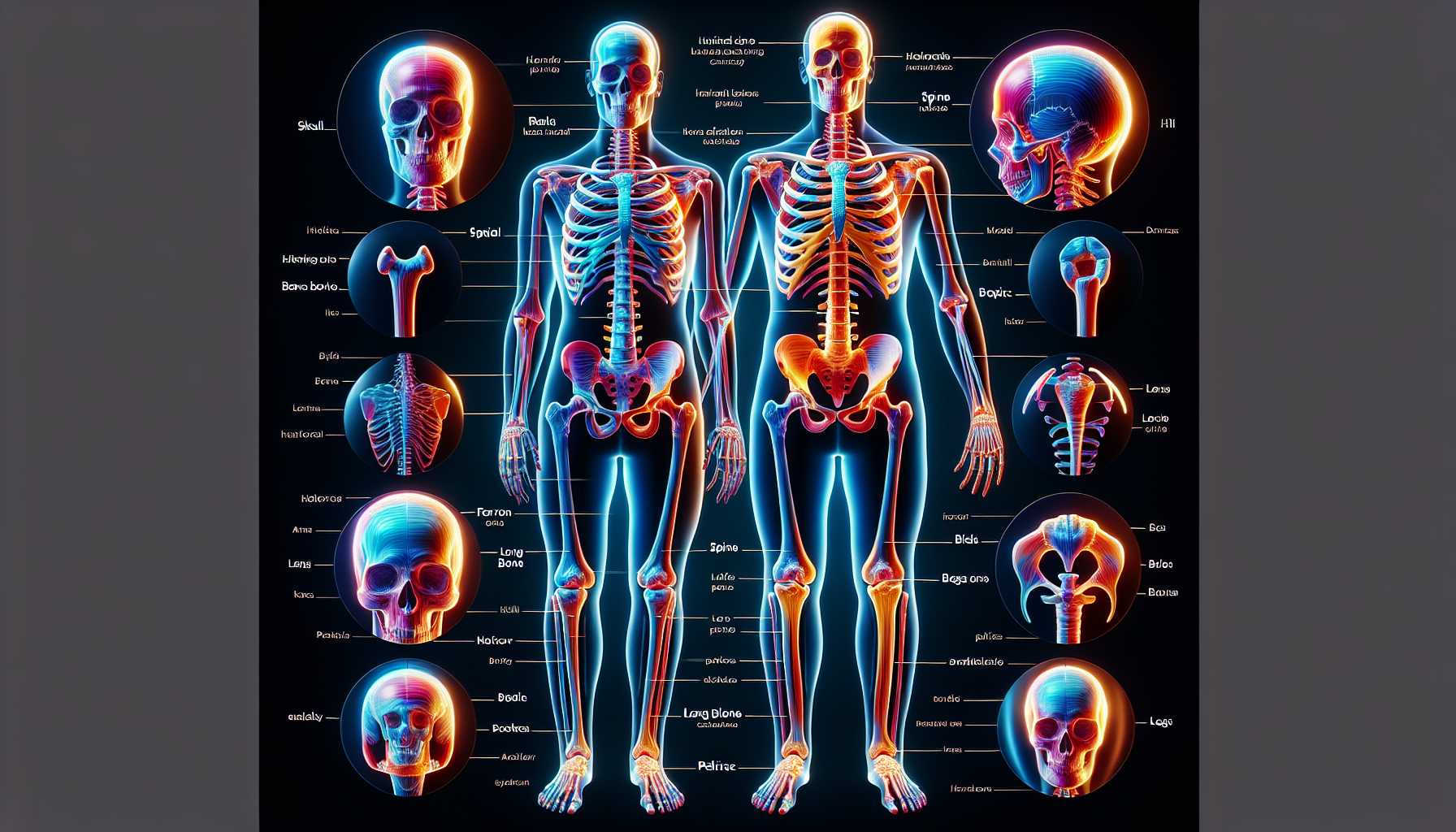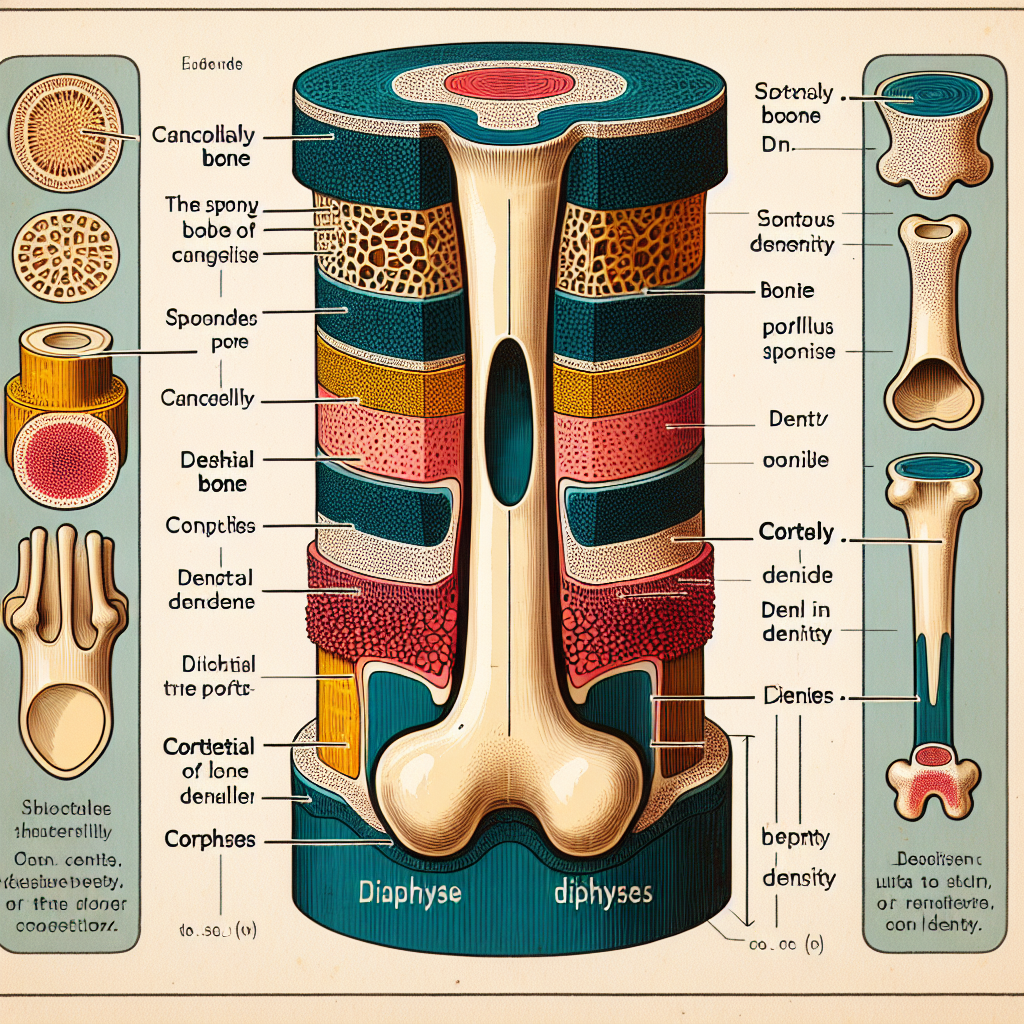Bone health is a crucial aspect of overall wellness, often overshadowed by more visible health concerns. However, the skeleton is our body’s supporting framework, and its health is essential for both mobility and protection of our internal organs. One important facet of bone health is bone density, which can be significantly influenced by body composition.
Understanding Bone Density
Bone density refers to the amount of mineral matter per square centimeter of bones. It is an indicator of bone strength and is often measured by dual-energy X-ray absorptiometry (DXA) scans. Healthy bone density is vital for preventing osteoporosis, a condition where bones become fragile and more prone to fractures.
The relationship between body composition—comprising fat mass, muscle mass, and body water—and bone density is complex and multifaceted. A healthy balance of body fat and muscle mass can contribute to better bone density, while an imbalance can lead to bone health issues.
The Role of Body Fat
Body fat has been traditionally viewed as a negative factor in bone health, but recent studies suggest that it plays a more nuanced role. Adipose tissue secretes hormones like leptin and adiponectin, which can influence bone metabolism. While excessive body fat, particularly visceral fat, can be detrimental, a certain amount of fat is necessary for hormone production that supports bone density. For more insights into the body’s fat and its role in health, consider reading about fitness and its impact on body composition.
Muscle Mass and Its Impact on Bones
Muscle mass is positively correlated with bone density. The mechanical stress that muscles place on bones during physical activity stimulates bone formation and strengthens the skeletal structure. As a result, individuals with higher muscle mass generally have better bone density. To understand the benefits of exercise on bone mineral content, explore "The Role of Exercise in Enhancing Bone Mineral Content."
Nutritional Considerations
Nutrition plays a pivotal role in both body composition and bone density. Adequate intake of calcium and vitamin D is essential for bone health, as they are the primary building blocks of bone tissue and aid in calcium absorption. Additionally, other minerals and vitamins, such as magnesium, phosphorus, and vitamin K, are also important for maintaining bone density. For a deeper dive into the interplay between nutrition and bone health, read about "Bone Density and Nutritional Absorption: How They Interact."
Factors Influencing the Relationship Between Body Composition and Bone Density
Several variables affect how body composition impacts bone density:
Age and Gender
Age-related muscle loss, known as sarcopenia, and changes in body fat distribution can affect bone density. Women are particularly at risk of developing osteoporosis post-menopause due to hormonal changes that can lead to bone density loss.
Hormonal Balance
Hormones such as estrogen, testosterone, and growth hormone have significant effects on both bone density and body composition. Imbalances in these hormones can lead to variations in bone density.
Physical Activity Level
Regular weight-bearing and resistance exercises are known to improve both muscle mass and bone density. A sedentary lifestyle, on the other hand, can lead to decreases in both.
Genetic Factors
Genetics can predispose individuals to certain body compositions and bone densities. The influence of genetic factors is discussed in the article "The Influence of Genetic Factors on Bone Density."
Health Conditions and Medications
Certain medical conditions and medications can affect body composition and bone density. For instance, glucocorticoids used to treat inflammatory diseases can lead to increased fat mass and decreased bone density.
Strategies for Optimizing Body Composition and Bone Density
To maintain a healthy body composition and bone density, consider the following strategies:
Engage in Regular Physical Activity
Incorporate weight-bearing and resistance exercises into your routine to build muscle mass and bone strength. Activities like walking, jogging, and strength training are beneficial.
Maintain a Balanced Diet
Ensure your diet is rich in calcium and vitamin D, along with other bone-supporting nutrients. Foods such as dairy products, leafy greens, and fish are excellent choices.
Monitor Body Composition
Keep track of your body composition and work towards a balance of body fat and muscle mass that supports bone health.
Address Hormonal Imbalances
If hormonal imbalances are affecting your body composition and bone density, seek medical advice for appropriate interventions.
Consider Supplementation
If dietary intake is insufficient, supplements may help in achieving the required levels of crucial nutrients for bone health.
External Resources
For further information on the relationship between body composition and bone density, here are some niche resources:
- Osteoporosis International provides a wealth of information on bone health, including the latest research on osteoporosis prevention and management.
- National Institute of Arthritis and Musculoskeletal and Skin Diseases (NIAMS) offers comprehensive guides on bone health, including factors affecting bone density.
- The Endocrine Society’s Hormone Health Network has resources on how hormonal imbalances impact body composition and bone health.
- The American College of Sports Medicine provides guidelines on exercise prescriptions for improving muscle mass and bone density.
- The International Osteoporosis Foundation offers tools and resources for understanding the link between diet, exercise, and bone health.
In conclusion, understanding and managing the relationship between body composition and bone density is a multifaceted endeavor that encompasses diet, exercise, hormonal health, and lifestyle choices. By focusing on these factors, individuals can work towards maintaining strong bones and overall health.



